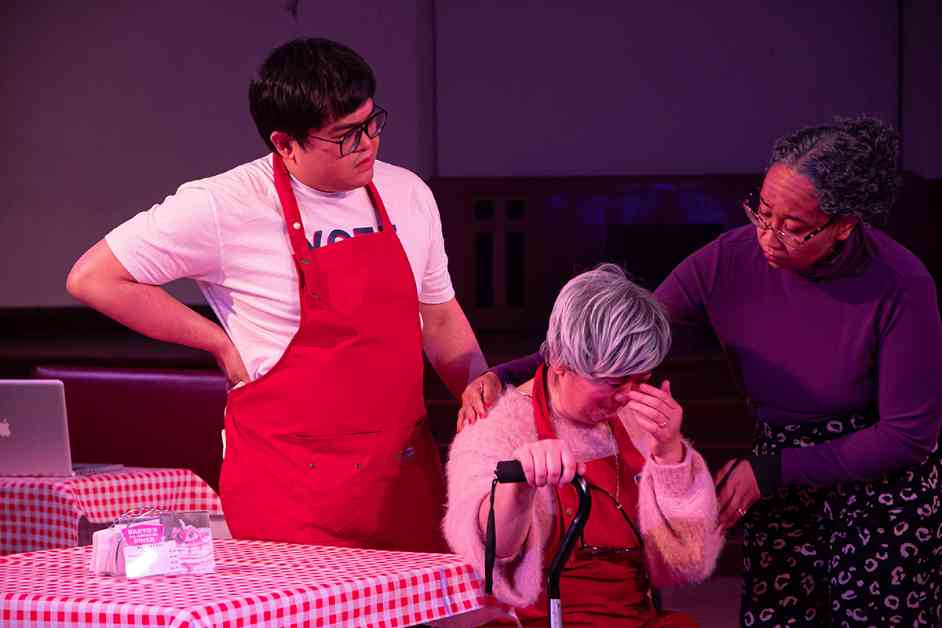Ginger Leopoldo, RJ Silva, and Giovanni Ortega from CIRCA Pintig had a vision of creating a festival of Filipino theater, starting with just a few nights of performances. But the response was overwhelming when they put out a call for new work in July. Now, the Chicago Filipino American Theatre Festival is gearing up for its October debut, with over 20 readings spread across three weekends. Each weekend will focus on different themes, starting with queer stories in collaboration with PrideArts on National Coming Out Day. The festival will then move to the Rizal Center to explore reflections on homecoming in Tagalog and English, before wrapping up with a focus on emerging voices and new generations.
The festival is rooted in CIRCA’s season theme of kapwa, or kindred, and will feature a variety of plays, including Daryo’s All-American Diner by Conrad A. Panganiban and Lani Montreal’s Leaving Mother: Anak ni Tapia. Festival conceptualizers Silva and Ortega will also have their plays showcased, with Hail Mary/Maria and The Butterfly of Chula Vista, respectively.
The festival aims to highlight the diverse perspectives within the Filipino diaspora, with a particular focus on the role of Filipino nurses in the U.S. health-care system. Foline Roos will present a new musical called Krossroad, reflecting on the significance of nursing to Filipino American immigration.
For Leopoldo, the festival holds personal significance, as it aligns with her lifelong mission to educate and mobilize through the arts. CIRCA Pintig, formerly known as Pintig Cultural Group, has been showcasing Filipino stories since 1991, with a commitment to empowering community members to share their voices and stories.
The timing of the festival coincides with a growing interest in Filipino culture, as seen in pop culture references and culinary trends. Silva believes that Filipino theater has a place in this cultural landscape and hopes to see it grow in the future.
Overall, the Chicago Filipino American Theatre Festival promises to be a celebration of Filipino voices and stories, honoring the community’s history and contributions to the cultural tapestry of the U.S. Through theater, the festival aims to inspire dialogue, reflection, and connection among audience members and performers alike.


